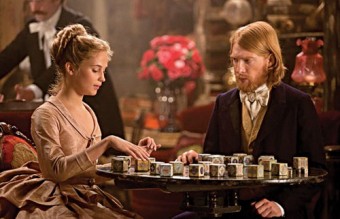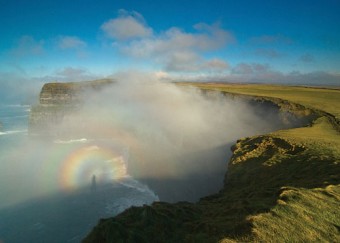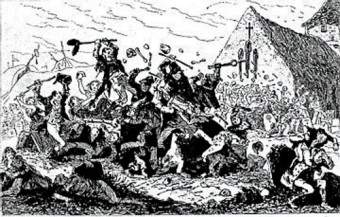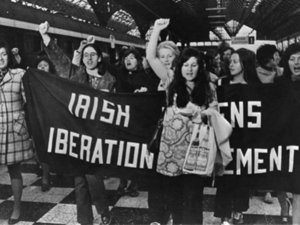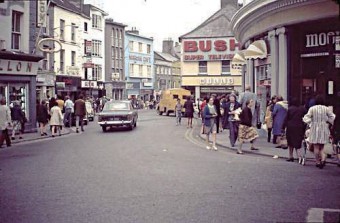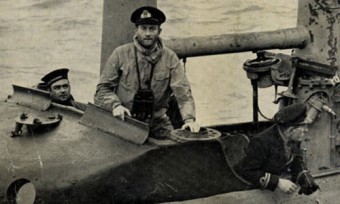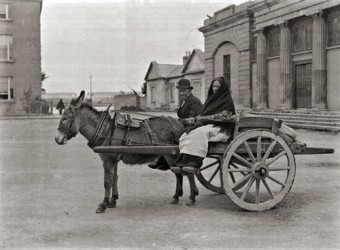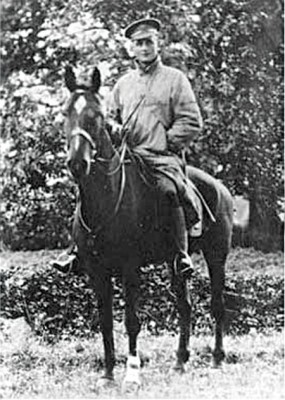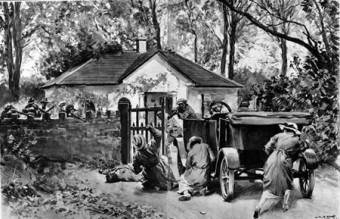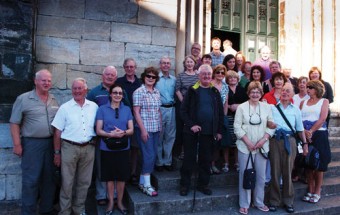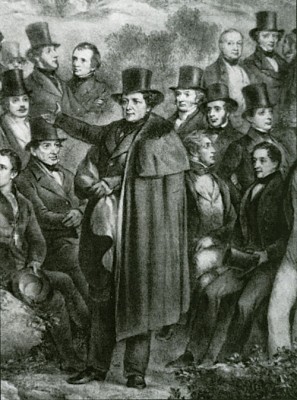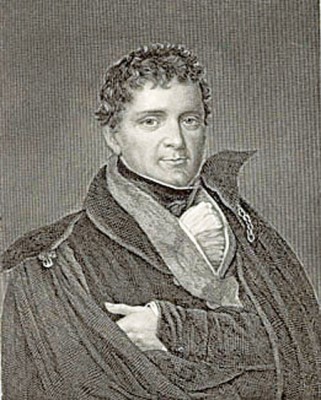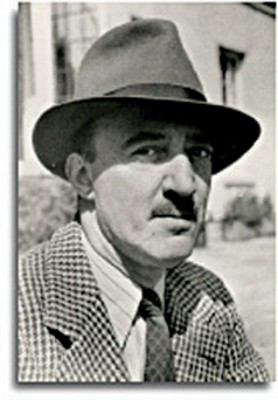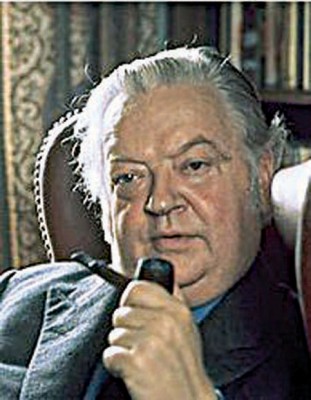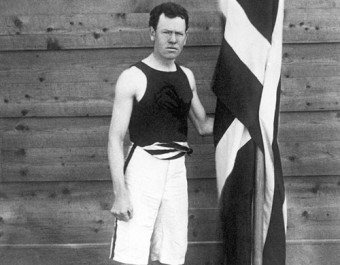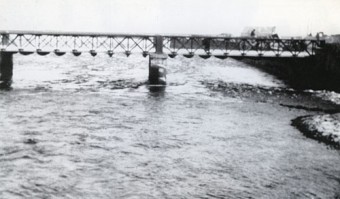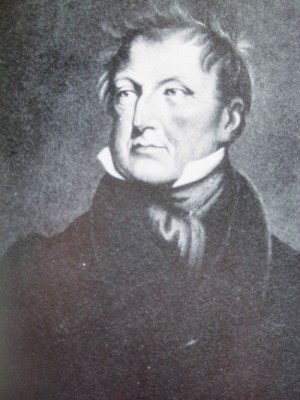'Kiss your wife, and you kiss your husband'
Thu, Dec 27, 2012
One of the film highlights of the year for me was Anna Karenina, a British adaptation of Leo Tolstoy's great novel of the same name.
Read more ...Rebecca of Sunnybrook Farm meets Charles Dickens
Thu, Dec 27, 2012
This year marked the 200th anniversary of the birth of Charles Dickens. He was born February 7 1812, and died at only 58 years of age in 1870. His output was so prolific – vast novels with hundreds of characters – and his life was so frenzied, that it seems miraculous that he lived as long as he did.
Apart from his writing, theatricals, travels, and editing magazines, he gave popular public readings from his books which were sell out performances. Audiences came in their thousands, and were disappointed to be turned away.
Read more ...The amazing 'Brocken Spectre'
Thu, Dec 27, 2012
Early last February local photographer Sean Tomkins found himself walking along a very foggy Atlantic coast in County Clare.
Read more ...'Galwegians are particularly vindictive'
Thu, Dec 27, 2012
An unflattering picture of Galway in the mid 19th century is recorded here by a German teacher Adolf Helfferich. Earlier this year Eoin Bourke, emeritus professor of German at NUIG, published a very interesting collection of German traveller's views of Ireland from before the 1798 Rising to after the Great Famine (Poor Green Eirin published by Peter Lang and Co).
Read more ...Ten things an Irish woman could not do in 1970
Thu, Dec 13, 2012
What dominated our news and much of our conversations during the 1970s (at least in the early years), was the deteriorating crisis in Northern Ireland. When I think of that decade I remember the initial hope that something would be settled quickly rather than letting it drag on fuelled by appallingly bad political decisions, thuggery, and deeply imbedded hatred. Seamus Heaney remarked that in the early 1970s ‘there was a promise in the air as well as fury and danger’. But in Northern Ireland any nervous sense of hopeful expectation quickly soured; as Heaney recalled: ‘Soon enough it all went rancid.’ In John Montague’s poem The Rough Field, he observes: ‘In the dark streets, firing starts.’
Read more ...Reeling back the years....
Thu, Dec 06, 2012
I get both embarrassed and amused, in an hysterical sort of a way, reading back over the recent social history of poor Cathleen Ní Houlihan. Particularly when it touches on anything sexual. It is surprising that any of us were born at all, such was the misery caused at the mention that anyone might be enjoying a healthy sexual relationship with a partner. The impression was given that everyone who had sexual contact outside marriage was not only in a state of serious sin, but that they were some kind of social pariah, to be scorned and driven away from normal society. Even sex within marriage could be shaky. It really was a subject that could not be discussed in public at all without inviting legions of self-righteous men and women out on the streets proclaiming well-meaning but ill-informed opinion.
Read more ...Tricksters, undemonstrative fathers, and other stories...
Thu, Nov 29, 2012
I wonder would the following story still happen in Galway today. It happened in more innocent times, in the early 1960s. A very upper class gentleman, Major Woodfall Murphy, rented Bermingham House, the great 18th century pile once owned by the barons of Athenry, on the outskirts of Tuam. The genuinely snobby Lady Molly Cusack Smith, who owned the pile, was only too glad with the promised extra lolly. To the outsider it all felt hunky-dory: One snob helping another.
Read more ...‘Outstanding courage, skill and determination’ defined romantic Oranmore Commander
Thu, Nov 15, 2012
The first winter of the war was unusually cold. Commander Bill King’s submarine Snapper served in the North Sea from April 1939 for 12 months. During that time it had numerous contact with enemy ships, mainly in the Skagerrat Strait, between the southeast coast of Norway and the southwest coast of Sweden.
Read more ...The lady who sold Coole Park
Thu, Oct 25, 2012
Week III
One of the significant consequences of the Ballyturn ambush, on May 15 1921, was that it heralded the end of Coole, the anvil of the Irish Literary revolution at the beginning of the 20th century.
Burnings and panic follow Ballyturn ambush
Thu, Oct 18, 2012
Following a tennis party at the home of Mr J C Bagot JP, of Ballyturn House, near Gort, on May 15 1921, the IRA scored a devastating blow against the British forces. The local District Inspector, Captain Cecil Blake, his lady companion Eliza Williams; two officers, Capt Cornwallis and Lieutenant McCreery were shot dead in an ambush as they drove away from the house. The IRA party, probably as many as ten men, had taken up position in the gate lodge, and in the surrounding bushes. One gate was closed. The car had to stop to open it. At that moment the IRA opened fire. There was one survivor, Margaret Gregory, the widowed daughter-in-law of Lady Gregory.
Read more ...Grandson returns to scene of assassinated RIC inspector
Thu, Oct 11, 2012
he car pulled up as one side of the gate had been closed by us for that purpose. A man left the car to open the gate. I didn’t know him. When he got to the gate he got the order “hands up” from Ryan and myself. Instead of complying he dodged for cover out of our sight. We concentrated fire on the car, doing our best to save the women in it. The men in the lodge killed the man who came to open the gate. Blake and the other man in the car were killed and one of the two women. Brigadier Stanford (IRA) was on one knee. A bullet hit the stock of his gun, grazed the inside of his leg above the knee and lodged in the heel of his boot. It must have been from the .32 Colt automatic fired by the man who tried to open the gate. I heard afterwards that this man was Captain Cornwallis and that the other man killed was Lieutenant McReary.
Read more ...First St Augustine’s pilgrimage to Santiago de Compostella
Thu, Sep 27, 2012
On a warm Saturday evening in a little town of Arzúa, about 40kms from Santiago de Compostella, a group of Galway pilgrims watched the local brass band competition. Led by their conductors three bands marched up the street, playing marching tunes.
Read more ...Daniel O’Connell leaves the Irish stage
Thu, Sep 13, 2012
Having got him there, Clifden was not going to let Daniel O’Connell go easily. The meeting, on the edge of the town had been an unparalleled success, and the excitement prevailed. The organisers had constructed a huge pavilion ‘on the highest point of the town’, covered with canvass. It must have been of considerable size as 300 men sat at long tables, while 200 ladies sat in the adjoining galleries. At 8pm that Sunday evening, September 17 1843, O’Connell and other guests entered the pavilion with one of the Galway Temperance bands preceding him with lively tunes. His arrival was greeted with the ‘ most deafening cheers’, while the ladies waved scarves and handkerchiefs.
Read more ...‘A more exhilarating or magnificent scene could not be witnessed’
Thu, Aug 30, 2012
On Friday evening, September 15 1843, Daniel O’Connell, with a small group of close friends, including his son Daniel and Dr John Grey, proprietor of the Freeman’s Journal, arrived in Galway. The excitement was intense. O’Connell, at 68 years of age, was at the height of his powers. Fourteen years previously he had succeeded in removing the oaths that had prevented Catholics from becoming members of parliament. He took his seat as MP for Clare, the first Irish Catholic to do so. His charismatic personality, brilliant oratory, and powerful intellect, had won him an enormous following, not only throughout Ireland but in Europe as well. His achievement earned him the title of The Liberator, which had all the resonance of an ancient and powerful king who had raised the sword of freedom.
Read more ...The man who sold Ireland to millions
Thu, Aug 16, 2012
‘The Claddagh at Galway is one of the most remarkable sights in Europe. I find it almost inconceivable to realise that a man can breakfast in London, and lunch the next day within sight of this Gaelic village....
Read more ...The man who almost sent Monty to his doom
Thu, Aug 09, 2012
On the eve of taking up a world prestigious position no one had such a baptism of fire as Lord Michael Killanin in September 1972. He was to succeed the autocratic Avery Brundage as president of the International Olympic Committee, and was regarded as a breath of fresh air.
Read more ...The man who said ‘Good day’ to Harvard
Thu, Aug 02, 2012
The south Bostonian, James Brendan Connolly, was once described by Joseph Conrad as the ‘best sea-story writer in America’. He wrote 19 novels and short stories about ships and sailors at sea, the US navy, submarine patrols in World War I, and the heroic struggles of the Gloucester fishermen on the treacherous Grand Bank and Nova Scotia regions hunting for cod and halibut.
Read more ...Time we turned and faced the water
Thu, Jul 12, 2012
If there is one thing that ‘Let’s Do It Galway’ - those inspirational people who guided the Volvo Ocean Race into our beautiful Bay- has taught us, and that is that the sea is a resource for possibility and opportunity. For too long Galway, and other coastal towns, have regarded the sea as a source of separation, and a reminder of bad times. In Galway, despite having a wide river flowing through it, and an expansive bay on its shoreline, buildings in general have turned their backs to it.
Read more ...The case of the Craughwell Prisoners
Thu, May 31, 2012
In the 1880s the Land War was at its height. It was a prolonged period of bitter civic unrest which pitted an unprotected peasantry against some ruthless landlords, who had the law and power of eviction at their disposal. Following the Great Famine a weakened tenant peasantry was easily removed from the land. It began a pitiful trail to the workhouse, and the emigrant ships. But as the century progressed the situation changed. The highly organised Irish National Land League supported evicted farmers; while members of the Irish Parliamentary Party in Westminster fought for legislation which would eventually see a redistribution of land to tenants.
Legislative development, however, would take years. There were other weapons which supported the tenant in the meantime. Secret societies, such as the Irish Republican Brotherhood, the‘ White Boys’ and many others, exerted huge pressure on the people to resist rent increases, and to remain silent as to its membership. An effective weapon was boycott. A landlord who was boycotted meant that he could not buy food locally, and his domestic and estate staff would leave him. Animals were sometimes maimed, or released to wander the roads. Walls were knocked, hay barns set alight. He could apply for police protection, and with difficulty, have food brought to him from outside his area. John W Lambert of Aggard House, the owner of an estate of 3,440 acres, had a grave dug in front of his house as a warning. He was boycotted
Read more ...Clifden’s Parisian boulevards
Thu, May 17, 2012
The man who opened Connemara to the traveller, and built an infrastructure to encourage trade and commerce in what was a wilderness of bog, mountain, and a rocky sea coast, was the Scottish engineer Alexander Nimmo. He was originally commissioned to investigate the possibility of draining the bogs, and replace them with a landscape of arable land suitable for farming. But Nimmo was the original man who thought outside the box. In his report of 1812 he outlined the total neglect of the region which had about 30,000 inhabitants, mostly living along her coast, eking out a bare subsistence livelihood. But he saw huge potential in the natural wealth of Connemara for tourism, and limited industry. He reported that there were large quantities of fish in its lakes and sea, and abundant seaweed for manure and for the manufacture of kelp. Its agriculture was undeveloped, its bogs badly harvested. All this neglect could be remedied
Read more ...